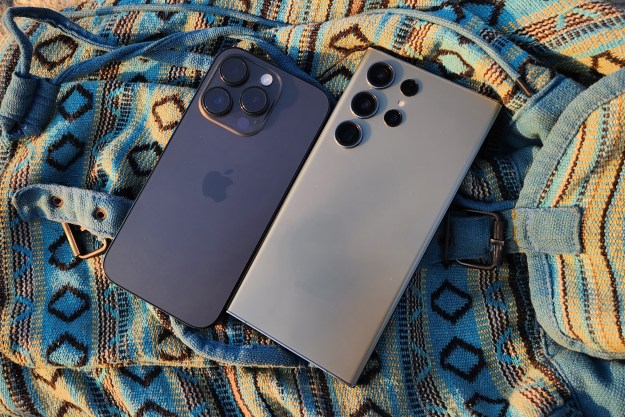
In documents submitted to San Diego Federal Court, Qualcomm alleges that Foxconn (also known as Hon Hai Precision Industry Co.), Pegatron Corp., Winstron Corp., and Compal Electronics refused to pay licensing fees on the company’s intellectual property.
All of Apple’s contract manufacturers, which are based in Taiwan but have manufacturing operations in China and elsewhere, have have patent license agreements with Qualcomm. Normally, Apple reimburses any royalties owed on patented technologies in the iPhone and iPad, but the company blocked Foxconn and others from paying last month.
Qualcomm, which is seeking $1 billion in damages, said its court action was in direct response to Apple’s decision.
“Apple is definitely behind this, and certainly what the contract manufacturers would say is the reason they are not paying,” Don Rosenberg, Qualcomm’s general counsel. told the Associated Press. “Our response to that is you are big, sophisticated companies. You have contractual obligations. You have license agreements with us that don’t involve Apple. You are responsible for paying that.”
Qualcomm’s legal action falls short of what some analysts expected. Last week, Bloomberg reported that Qualcomm would ask the United States International Trade Commission to issue an injunction prohibiting iPhone imports.
“While not disputing their contractual obligations to pay for the use of Qualcomm’s inventions, the manufacturers say they must follow Apple’s instructions not to pay,” Qualcomm said in a statement.
Over the better part of the year, Qualcomm and Apple have traded blows over what the chipmaker characterized as a “global attack.”
Qualcomm has been accused of government regulators that its patent licensing scheme, which ensnared electronic giants like Samsung and Intel, is “monopolistic.” The company owns cellular patents that it’s agreed to lease under “fair, reasonable, and nondiscriminatory” terms because they’re an essential part of the technology inside most smartphones. But Apple and licensees say that Qualcomm abused its market dominance to overcharge for patents and block competition.
The Korea Federal Trade Commission fined Qualcomm more than $850 million, and has sought to dismantle the company’s patent licensing. The U.S. Federal Trade Commission (FTC) filed suit shortly after, and Samsung and Intel have filed briefs in support the FTC’s case.
Apple has pushed back more aggressively. Earlier this year, it withheld $1 billion in reimbursements on grounds that Qualcomm had violated a closed-doors agreement between the two companies in retaliation for Apple’s cooperation with regulators.
In response, Qualcomm’s counter-sued, appealing the Korea Fair Trade Commission decision and asking a Northern California federal judge to dismiss the FTC case.
Editors' Recommendations
- The DOJ has sued Apple over the iPhone. Here’s what it means for you
- How bad is a 2012 iPhone camera in 2023? Take a look for yourself
- It’s finally happening — your iPhone is getting RCS in 2024
- 4 things Android phones still do better than the iPhone 15
- Apple may face ‘severe’ iPhone 15 shortage over production issue, report says

